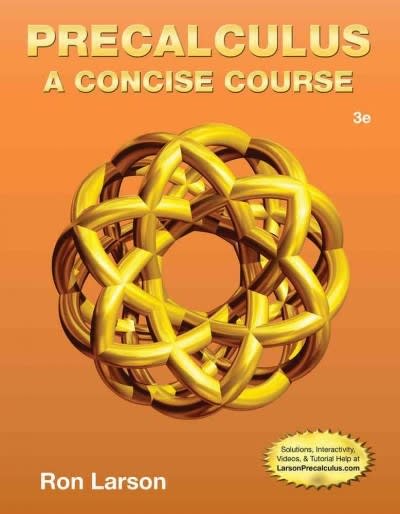Answered step by step
Verified Expert Solution
Question
1 Approved Answer
9:24 PM Fri Nov 18 9:24 PM Fri Nov 18 < Quiz 4 - make-up b. = $8,227 d. = $9,730 88% 0 Home Times


9:24 PM Fri Nov 18 < Quiz 4 - make-up b. = $8,227 d. = $9,730 88% 0 Home Times New Roman Insert Draw Layout Review View Multiple Choice: Read each question carefully and write the letter corresponding to the best response in the space provided before the question number. According to a recent study, the average American spends $10,345 on health care. A researcher wants to know if the amount of money residents in Louisville spend on health care is different than this national average. A survey of 300 randomly selected residents found that they spent an annual average of $9,730 on health care with a standard deviation of $8,227. The researcher plans to run a hypothesis test at a 5% level of significance. Use this information to answer the following multiple-choice questions below. 1. 2. 3. 4. 5. Is this outcome variable in this study considered to be continuous or dichotomous? a. Continuous What is the null hypothesis in this study? a. 0.05 c. Ho: g = $10,345 b. Dichotomous The alternative hypothesis of this study indicates a(n) a. lower-tailed test. b. upper-tailed test. c. two-tailed test. Should a z or t test statistic be used for this hypothesis test? a. A z test statistic because the sample size is greater than 30. b. A t test statistic because the sample size is less than 30. c. A z test statistic because the expected number of success and the expected number of failures are both greater than 5. d. Neither test statistic can be used because either the expected number of success or the expected number of failures is less than 5. The p-value associated with this hypothesis test was determined to be 0.195. Based only on this p-value, is there significant evidence to show that Louisville residents spend a different amount than the nation average? a. b. c. d. No, because the p-value is less than the level of significance. No, because the p-value is greater than the level of significance. Yes, because the p-value is less than the level of significance. Yes, because the p-value is greater than the level of significance.
Step by Step Solution
There are 3 Steps involved in it
Step: 1

Get Instant Access to Expert-Tailored Solutions
See step-by-step solutions with expert insights and AI powered tools for academic success
Step: 2

Step: 3

Ace Your Homework with AI
Get the answers you need in no time with our AI-driven, step-by-step assistance
Get Started


